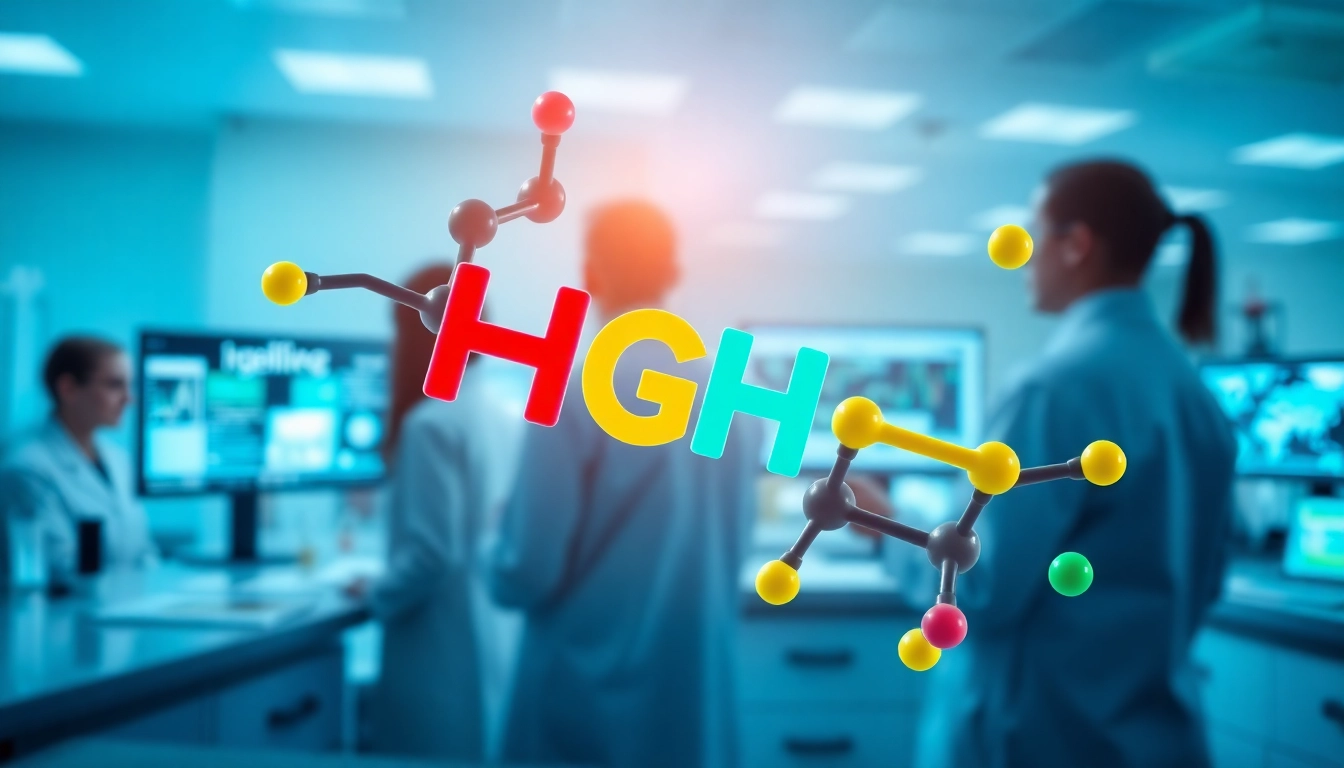1. Introduction to Human Growth Hormone (HGH)
1.1 Definition and Overview of what is hgh
The term what is hgh refers to human growth hormone, a key peptide hormone produced by the anterior pituitary gland. This hormone is primarily responsible for stimulating growth, cell reproduction, and cell regeneration in humans and other animals. In clinical terms, HGH plays a significant role in human development, impacting various bodily functions, including metabolism, muscle and bone growth, and tissue repair.
1.2 Historical Context of HGH Use
The history of human growth hormone dates back to the early 20th century, when it was first isolated from human cadavers. Early clinical studies utilized extracts from pituitary glands of deceased donors to treat growth disorders in children. However, the practice was fraught with ethical concerns and potential health risks, leading to the development of synthetic HGH in the 1980s. This innovation not only made HGH widely available but also opened up new avenues for research into its potential benefits, including anti-aging therapies and performance enhancement.
1.3 Importance of HGH in Development
HGH is crucial during childhood and adolescence, facilitating normal growth and development. It triggers the liver to produce insulin-like growth factor 1 (IGF-1), which in turn stimulates the growth of bones and tissues. Beyond childhood, HGH maintains metabolic functions, influencing how the body composes fat and muscle. It plays a vital role in maintaining body composition, and its deficiency or excess can lead to various health issues, including obesity, diabetes, and acromegaly, a condition marked by abnormal growth of bones and tissues.
2. Biological Functions of HGH
2.1 Growth and Development in Children
In children, HGH is essential for normal growth and development. It promotes the growth of bones and cartilage, enabling an increase in height and overall growth. Enhanced synthesis of proteins and cellular multiplication are other critical contributions of HGH in the pediatric population. When children have a deficiency in growth hormone, it can lead to growth retardation and delayed puberty. Medical interventions using HGH have shown considerable success in reversing deficiencies and promoting healthy growth.
2.2 Maintenance of Body Composition in Adults
For adults, HGH maintains body composition by regulating fat metabolism and muscle mass. Studies have demonstrated that HGH influences body fat distribution, reducing visceral fat and increasing lean muscle mass. This aspect is particularly important as individuals age since natural production of HGH declines over time. Thus, maintaining optimal HGH levels can contribute to a healthier body composition, reducing the risk of metabolic disorders like obesity and type 2 diabetes.
2.3 Role of HGH in Cell Regeneration
HGH fosters cellular regeneration and repair across various tissues in the body. It enhances healing processes, particularly after injuries or surgeries, helping tissues recover at a faster rate. Additionally, HGH aids in the restoration of skin elasticity and hydration, contributing to a more youthful appearance. This regenerative capability is why HGH is often touted in discussions about anti-aging treatments, although clinical applications should be approached with caution due to potential side effects.
3. Benefits of HGH Supplementation
3.1 Enhancing Muscle Growth and Repair
HGH supplementation has been widely utilized in the fitness community for its reputed benefits in enhancing muscle growth and repair. Research indicates that HGH can help increase muscle mass by stimulating protein synthesis, which is crucial for muscle recovery after strenuous workouts. Athletes and bodybuilders often seek to optimize their HGH levels to enhance performance, reduce recovery time, and increase overall strength.
3.2 Potential Anti-Aging Effects of what is hgh
The concept of using HGH for anti-aging purposes is highly debated. Proponents argue that HGH can reduce body fat, improve skin tone, and increase energy levels, which are commonly associated with youth. Scientific studies have suggested that HGH may improve muscle strength, bone density, and even cognitive function in older adults. However, the use of HGH as an anti-aging therapy is not approved by many health authorities and should be approached carefully due to the possible adverse effects of excessive supplementation.
3.3 Improving Athletic Performance and Recovery
Many athletes have turned to HGH to enhance their performance and recovery. HGH is thought to increase energy levels, promote fat loss, and accelerate recovery from injuries, making it attractive for competitive athletes. However, its use in sports is controversial and often considered a performance-enhancing drug, leading to stringent regulations and testing protocols in competitive sports to prevent misuse.
4. Understanding the Risks and Side Effects
4.1 Possible Health Risks from HGH Use
While HGH supplementation can offer benefits, it is not without risks. Potential side effects may include joint and muscle pain, swelling due to fluid retention, insulin resistance, and increased risk of certain cancers. These risks highlight the need for legitimate medical supervision when considering HGH as a treatment option.
4.2 Long-Term Effects of Supplementation
The long-term effects of HGH supplementation remain largely understudied. Some research has suggested potential negative outcomes, such as increased risk of diabetes and cardiovascular disease, particularly with prolonged or excessive use. Regular monitoring and guidance from healthcare professionals can help mitigate some of these risks, but caution is still necessary for anyone considering long-term supplementation.
4.3 Recognizing Signs of HGH Abuse
Recognizing the signs of HGH abuse is essential for ensuring safety. Symptoms may include unnatural increases in muscle mass, changes in appearance such as facial swelling or enlargement of hands and feet, joint pain, and signs of diabetes. Awareness of these indicators is crucial for individuals and healthcare providers to address potential misuse and its harmful effects.
5. Conclusion and Future Perspectives
5.1 The Future of HGH Research
HGH research continues to evolve, exploring new therapeutic uses, including its potential in managing age-related conditions and chronic illnesses. Future studies may yield more comprehensive findings on the efficacy and safety of HGH supplements, guiding clinical practices and policies regarding its usage.
5.2 Debunking Common Myths about what is hgh
Several myths surrounding HGH persist, often fueled by anecdotal claims and misinformation. One common myth is that HGH can serve as a cure-all for aging, while in reality, its role is more nuanced and should be viewed within the context of a healthy lifestyle. Debunking these myths is crucial for fostering informed decisions among the public.
5.3 Final Thoughts on HGH and Health
In conclusion, understanding HGH and its implications for health is critical in today’s wellness landscape. While it plays essential roles in growth and metabolism, responsible use and thorough understanding of the associated risks are paramount. With ongoing research, the future of HGH might reveal more rational applications that benefit individuals without compromising their health.



